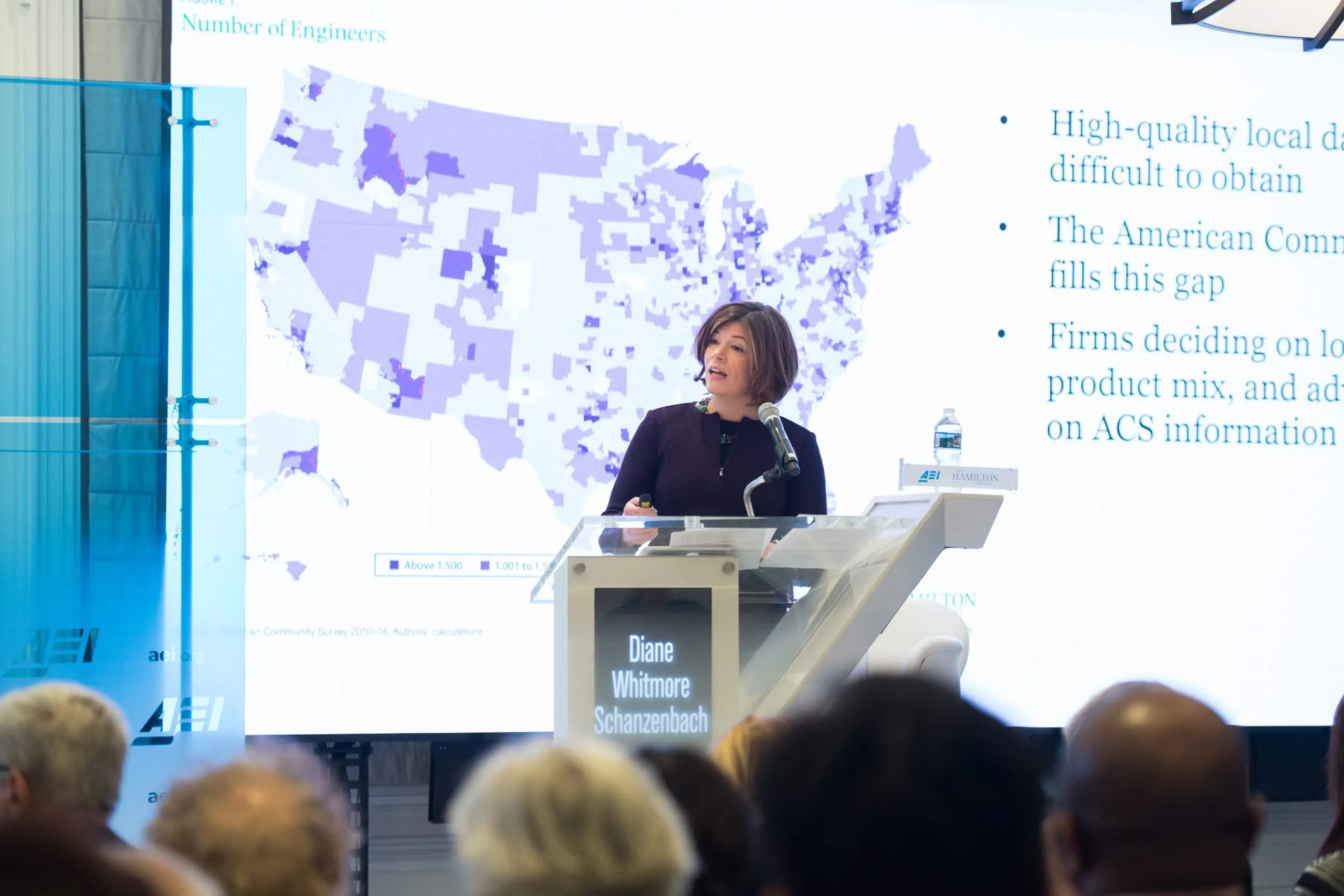The modern economy is more reliant on data than ever before. Without reliable information about the economic and social environment, making sensible choices that produce positive outcomes in commerce, research, and governance is impossible. Although the federal government’s statistical agencies play a vital role in generating this information, their value is often overlooked.
On March 2, the Hamilton Project at Brookings and the American Enterprise Institute convened a policy luncheon discussion highlighting the important role of government statistics. The forum began with remarks from Arthur Brooks and Robert E. Rubin. Diane Whitmore Schanzenbach presented on the value of government statistical agencies, followed by a roundtable discussion with Rebecca Blank, Martin S. Feldstein, Ellen Davis, Torsten Slok, and David Leonhardt. In conjunction with this event, the Hamilton Project and AEI released a set of economic facts on the importance of government-collected statistical data.
Agenda
12:15 PM Registration and Lunch
12:30 PM Introductions
Arthur C. Brooks
President
The American Enterprise Institute
12:35 PM Welcome
Robert E. Rubin
Co-Chair, Council on Foreign Relations;
Former U.S. Treasury Secretary
12:40 PM Presentation of Research
Diane Whitmore Schanzenbach
Director, The Hamilton Project
Senior Fellow, Economic Studies, The Brookings Institution
12:55 PM Roundtable: The Vital Role of Government Statistics
Discussant: Rebecca Blank
Chancellor
University of Wisconsin – Madison
Discussant: Martin S. Feldstein
George F. Baker Professor of Economics, Harvard University;
President Emeritus, National Bureau of Economic Research
Discussant: Ellen Davis
Executive Director
NRF Foundation
Discussant: Torsten Slok
Chief International Economist
Deutsche Bank
Moderator: David Leonhardt
Associate Editorial Page Editor
The New York Times















